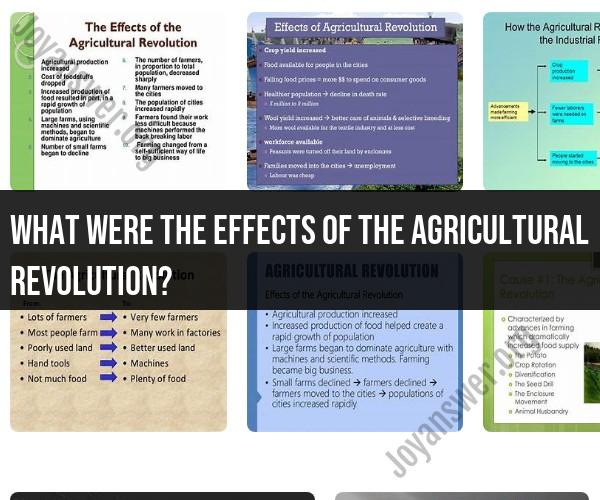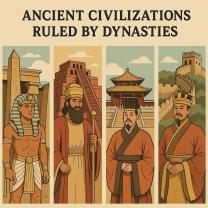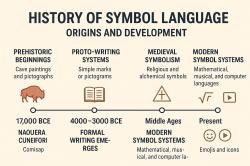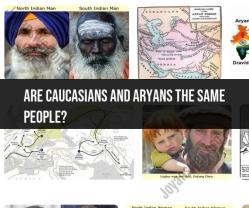What were the effects of the Agricultural Revolution?
The Agricultural Revolution had far-reaching and profound effects on human societies and marked a significant turning point in human history. Some of the key effects and consequences of the Agricultural Revolution include:
Surplus Food Production: Agriculture allowed for the cultivation of crops and the domestication of animals, leading to surplus food production. This surplus could be stored and used during times of scarcity, reducing the risk of famine.
Population Growth: With a more stable and abundant food supply, populations began to grow. Larger communities could be supported, leading to significant population increases.
Sedentary Lifestyle: Agriculture enabled people to settle in one place to tend to their crops and livestock. This shift from a nomadic, hunter-gatherer lifestyle to a sedentary one laid the foundation for permanent settlements, villages, and eventually, cities.
Specialization of Labor: Surplus food production allowed some individuals to specialize in occupations other than farming. This specialization led to the emergence of various professions, such as artisans, merchants, priests, and leaders.
Trade and Exchange: The surplus food and resources produced through agriculture facilitated trade and exchange between communities. This exchange of goods and ideas contributed to cultural diffusion and cooperation among different populations.
Technological Advancements: Agriculture spurred the development of new tools and implements designed for farming, such as plows, sickles, and irrigation systems. These technological innovations improved agricultural efficiency.
Social Organization: As populations grew and communities became more complex, social organization and governance structures evolved. This included the emergence of leadership roles, legal systems, and religious institutions.
Property Ownership and Inequality: The concept of private property became more important as people staked claims to land, animals, and resources. This shift led to the development of social hierarchies and economic inequalities within communities.
Cultural Developments: The shift to agriculture brought about changes in cultural practices, including the emergence of organized religions, artistic expressions, and the development of symbolic systems of communication, such as writing.
Environmental Impact: The transition to agriculture had environmental consequences. People cleared land for farming, which could lead to deforestation and soil degradation. Additionally, the domestication of animals and the concentration of populations in settlements led to the spread of diseases.
Long-Term Impact: The Agricultural Revolution set the stage for subsequent developments in human history, including the rise of more complex societies, the invention of writing, and the spread of knowledge and technology. It laid the foundation for the world's major civilizations.
It's important to note that the effects of the Agricultural Revolution varied in timing and extent across different regions of the world. Additionally, while agriculture brought about many benefits, it also introduced challenges, such as land disputes, resource management issues, and health-related concerns in densely populated areas. Overall, the transition to agriculture fundamentally transformed human societies and had a lasting impact on the course of human civilization.
The Agricultural Revolution was a period of rapid change in human history that marked the transition from hunter-gatherer societies to agricultural societies. It began around 10,000 years ago in the Middle East and spread to other parts of the world over the next few thousand years.
The Agricultural Revolution had a profound impact on human societies in a variety of ways.
Effects on Population
One of the most significant effects of the Agricultural Revolution was on population. Agriculture allowed humans to produce more food, which led to a rapid increase in population. This population increase had a number of consequences, including:
- Led to the development of cities and civilizations: As human populations grew, they became more concentrated in certain areas. This led to the development of cities and civilizations.
- Increased social and economic inequality: As populations grew, social and economic inequality increased. This was due to a number of factors, including the privatization of land and the development of new technologies that favored the wealthy.
- Led to environmental degradation: As populations grew and agriculture expanded, it led to environmental degradation, such as deforestation and soil erosion.
Effects on Society
The Agricultural Revolution also had a profound impact on human societies in a number of other ways. For example, it:
- Led to the development of new social structures and hierarchies: The development of agriculture led to the development of new social structures and hierarchies, such as land ownership and trade.
- Led to the development of new cultural institutions: The development of agriculture led to the development of new cultural institutions, such as temples and religious festivals.
- Led to the development of new technologies: The development of agriculture led to the development of new technologies, such as the plow and the sickle.
- Led to changes in diet and nutrition: The development of agriculture led to changes in diet and nutrition, as humans began to rely more on cultivated crops and domesticated animals for food.
Effects on the Environment
The Agricultural Revolution also had a significant impact on the environment. For example, it:
- Led to deforestation: As agriculture expanded, humans cleared forests to create new farmland.
- Led to soil erosion: Intensive agricultural practices, such as plowing and overgrazing, led to soil erosion.
- Led to water pollution: Agricultural runoff from fertilizers and pesticides polluted rivers and streams.
Conclusion
The Agricultural Revolution was a watershed moment in human history. It had a profound impact on human societies in a variety of ways, including population, society, and the environment. The effects of the Agricultural Revolution are still felt today.
Additional Thoughts
The Agricultural Revolution was a complex and transformative period in human history. It is still being studied by archaeologists and other scientists today, and new discoveries are being made all the time.
One of the most important things to keep in mind is that the Agricultural Revolution was not a single event. It was a gradual process that took place over thousands of years and involved a variety of different factors.
Another important thing to keep in mind is that the Agricultural Revolution did not have a uniformly positive impact on human societies. While it led to a number of benefits, such as increased food production and population growth, it also led to social and economic inequality and environmental degradation.
The Agricultural Revolution is a fascinating and important period in human history. It is a period that continues to shape the world we live in today.













